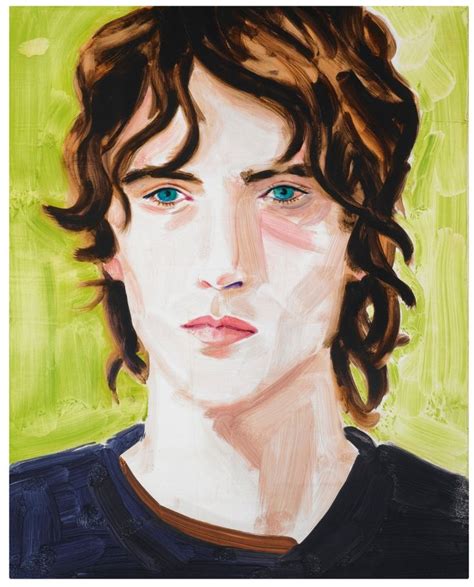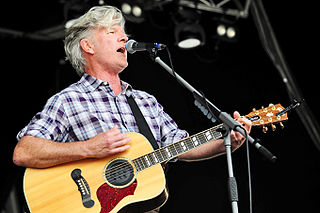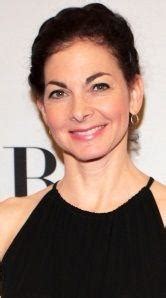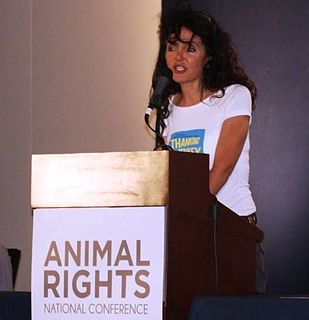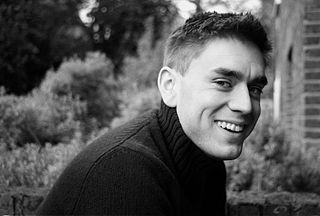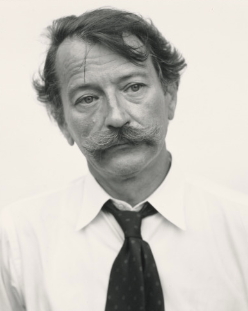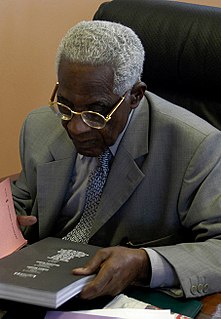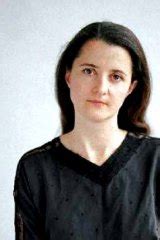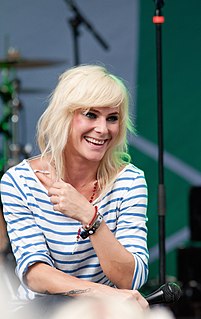Top 766 Roaring Twenties Quotes & Sayings - Page 12
Explore popular Roaring Twenties quotes.
Last updated on April 20, 2025.
I finally made friends with my father when I entered my twenties. We had so little in common when I was a boy, and I am certain I had been a disappointment to him. He did not ask for a child with a book, off in its own world. He wanted a son who did what he had done; swam and boxed and played rugby, and drove cars at speed with abandon and joy, but that was not what he wound up with.
In Middle America men are awakening. Like awkward and untrained boys we begin to turn toward maturity and with our awakening we hunger for song. But in our towns and fields there are few memory haunted places. Here we stand in roaring city streets, on steaming coal heaps, in the shadow of factories from which come only the grinding roar of machines. We do not sing but mutter in the darkness. Our lips are cracked with dust and with the heat of furnaces. We but mutter and feel our way toward the promise of song.
Sin is a lonely thing, a worm wrapped around the soul, shielding it from love, from joy, from communion with fellow men and with God. The sense that I am alone, that none can hear me, none can understand, that no one answers my cries, it is a sickness over which, to borrow from Bernanos, “the vast tide of divine love, that sea of living, roaring flame which gave birth to all things, passes vainly.” Your job, it seems, would be to find a crack through which some sort of communication can be made, one soul to another.
Quality is better seen up at the timberline than here obscured by smoky windows and oceans of words, and he sees that what he is talking about can never really be accepted here because to see it one has to be free of social authority and this is an institution of social authority. Quality for sheep is what the shepherd says. And if you take a sheep and put it up at the timberline at night when the wind is roaring, that sheep will be panicked half to death and will call and call until the shepherd comes, or comes the wolf.
Far over the Misty Mountains cold, To dungeons deep and caverns old, We must away, ere break of day, To seek our pale enchanted gold. The dwarves of yore made mighty spells, While hammers fell like ringing bells, In places deep, where dark things sleep, In hollow halls beneath the fells. The pines were roaring on the heights, The wind was moaning in the night, The fire was red, it flaming spread, The trees like torches blazed with light.
We carry adolescence around in our bodies all our lives. We get through the Car Crash Age alive and cruise through our early twenties as cool dudes, wily, dashing, winsome . . . shooting baskets, the breeze, the moon, and then we try to become caring men, good husbands, great fathers, good citizens.
Wilhelmine Germany was hostile to the expression of same-sex love - and, of course, Mann would have known of the fate of Oscar Wilde. His early reading of Platen's poetry, and, probably when he was in his early twenties, of Platen's diaries, introduced him to a form of sexual expression he found profoundly congenial. It's not quite Platonic.
Your post-college years should be an exploratory time in your professional life. From your early twenties and on into your early thirties, you should feel free to explore your professional prospects. Keep an open mind, and don't expect to get everything right straight out of the gate. Be prepared to start over once or twice.
You put together two people who have not been put together before; and sometimes the world is changed, sometimes not. They may crash and burn, or burn and crash. But sometimes, something new is made, and then the world is changed. Together, in that first exaltation, that first roaring sense of uplift, they are greater than their two separate selves. Together, they see further, and they see more clearly.
It wasn't until my late twenties that I learned that by working out I had given myself a great gift. I learned that nothing good comes without work and a certain amount of pain. When I finish a set that leaves me shaking, I know more about myself. When something gets bad, I know it can't be as bad as that workout.
I can't believe that Hillary Clinton wants the world to think that whenever she gets into political trouble, she's going to have her husband come roaring about, breaking furniture, sucking up oxygen, spewing carbon dioxide. My impression is that she's strong enough to defend herself - she certainly showed that in the recent Democratic debate. But apparently she's not strong enough to control Mr. Bill. And if that's the case, any sane voter would have to think twice before enabling this sort of circus act in the White House.
In my early twenties the nature of conservatism itself changed. When I identified as a fourteen-year-old conservative, it was closer to what we today think of as libertarianism - conservatism, at least for me, had been defined by Jeffersonian credos like "the best governed are the least governed" and "I have sworn eternal hostility against every form of tyranny over the mind of man" that were very idealistic and romantic to a kid.
Four or five years - nothing at all. But no one over thirty could understand this peculiarly weighted and condensed time, from late teens to early twenties, a stretch of life that needed a name, from school leaver to salaried professional, with a university and affairs and death and choices in between. I had forgotten how recent my childhood was, how long and inescapable it once seemed. How grown up and how unchanged I was.
Marie Antoinette: The Portrait of an Average Woman was one of those books I read in my mid-twenties that was life-changing. I think I had a very black-and-white view of Marie Antoinette before, but in reading that book, I developed a lot of empathy for her. She was just caught up in history. There was no place for a woman to do anything at that time anyway.
His touch both consoles and devastates me; I feel my heart pulse, then wither, naked as a stone on the roaring mattress while the lovely, moony night slides through the window to dapple the flanks of this innocent who makes cages to keep the sweet birds in. Eat me, drink me; thirsty, cankered, goblin-ridden, I go back and back to him to have his fingers strip the tattered skin away and clothe me in his dress of water, this garment that drenches me, its slithering odour, its capacity for drowning.
In the beginning of my twenties, I started transcendental meditation. For years I did nothing else. Every holiday I went to courses. Meditation is a real simple instrument. You don't need a long beard or a sari. It's meant to bring you to yourself. It's as easy as that. And that's what it's all about, being alone with yourself every day, for 20 minutes in the morning and 20 minutes in the evening.
You, sleeping on your bed of nails. Weeping an ocean beyond the pale. Strange, sorrow is your greatest skill. You're suffering from overkill... Choose whether to laugh or to cry. Menace and promise mingle in your eye. Wait, it's only a matter of time. You know everything will be fine... Rain falls down and the seas run high. When you're by my side we can rise above it. Let me dry all the tears inside. On your way you cannot hide from the howling wind and the roaring tide. You might get hurt but your fears will subside when you at last escape from the tears inside.
Even as we slog through the trials, persecutions, irritations, temptations, distractions, apathy, and just plain weariness of this world, the gospel points us to heaven where our King Jesus — the Lamb of God who was crucified in our place and raised gloriously from the dead — now sits interceding for us. Not only so, but it calls us forward to that final day when heaven will be filled with the roaring noise of millions upon millions of forgiven voices hailing him as crucified Savior and risen King.
I am haunted by what my life would have been had I not had the courage in my early twenties to leave Pittsburgh for New York City and really commit to being a writer. Pittsburgh is both post-industrial and provincial, and the opportunities there are limited. It would have been quite easy to simply drift through life.
It was really hard coming to terms with the Nazi history. Then in my twenties I was traveling to Germany. There was a lot of poetry activity and some of my first readings abroad and trying to relate with people my own age there and what they were discovering and learning had to examine in terms of their backgrounds. Then so many of my friends had family who had either perished in the holocaust or survived in the holocaust. It was very palpable.
In my teen years and early twenties I was really interested in this fellaheen worlds that, of course, Kerouac invokes and wanting to go below the border and wanting to get to these other places or interstices of the culture where you were encountering the realities of these other kinds of cultures, experiences, language, I think of jazz culture of course.
I have a lot of land. I bought it because I had a very strong feeling. I was in my early twenties, and I had grown up in Los Angeles and had seen that city slide off into the sea from the city I knew as a little kid. It lost its identity - suddenly there was cement everywhere and the green was gone and the air was bad - and I wanted out.
If upon this earth we ever have a glimpse of heaven,it is when we pass a home in winter, at night,and through the windows, the curtains drawn aside,we see the family about the pleasant hearth; the old lady knitting; the cat playing with the yarn;the children wishing they had as many dolls or dollars or knivesor somethings, as there are sparks going out to join the roaring blast;the father reading and smoking, and the clouds rising like incense from the altar of domestic joy.I never passed such a house without feeling thatI had received a benediction.
In my mid-twenties, I said to myself: 'I can't perform anymore!' I didn't know what I wanted to do. I didn't perform for a while, then ended up doing a one-woman show about Gilda Radner having cancer. It was called 'Gilda Defying Gravity,' and I did it on the Lower East Side. It was great; people really came out and supported me.
The writing of the Beatles, or John and Paul's contribution to the Beatles in the late sixties - had a kind of depth to it, a more mature, more intellectual approach. We were different people, we were older. We knew each other in all kinds of different ways than when we wrote together as teenagers and in our older twenties.
I'm really glad that I made a lot of mistakes, poorly chose my friends throughout my twenties, and didn't have a rocket trajectory that set me on one path without making any mistakes or having any setbacks. The older I get, the more I realize that it's all of these failed, horrible things from my past, and the stories that they generated, that are the things I will draw on for the rest of my life.
And what does the rain say at night in a small town, what does the rain have to say? Who walks beneath dripping melancholy branches listening to the rain? Who is there in the rain’s million-needled blurring splash, listening to the grave music of the rain at night, September rain, September rain, so dark and soft? Who is there listening to steady level roaring rain all around, brooding and listening and waiting, in the rain-washed, rain-twinkled dark of night?
I spent my twenties not really participating in the work force in any real way. I acted a tiny bit, but that was just because it was the only way I knew how to make money, and I sublet my apartment and lived in the woods and just tried to figure out who I was and what I wanted, what my real desire was and not just what I was used to doing, and it was a really confusing and painful, but really rich and amazing time.
I was a teenager when General Zia took power in the Pakistan; I was in my twenties when I went there during the late 1980s and I saw then not only the novel punishments that he was introducing - because they were novel, and this is again something that's very important to understand, it's only in the last thirty, forty years, since 1979 in fact, that these penalties have been revived anywhere in the world apart from Saudi Arabia.
Historians differ on when the consumer culture came to dominate American culture. Some say it was in the twenties, when advertising became a major industry and the middle class bought radios to hear the ads and cars to get to the stores. ... But there is no question that the consumer culture had begun to crowd out all other cultural possibilities by the years following World War II.
Some of us seem to be born with a drive to try to make the world kinder. In my twenties, living in New York City, I worked in a soup kitchen every Sunday for many years, just trying to do my part. Then I read Animal Liberation and learned about factory farming and the killing of animals for oven cleaner and realized nobody needed my help as badly as the animals did.
Having spent all of my teens and my twenties partying hard (very hard) then working the next day, I can assure you that losing bit of sleep to feed the thing you love most in the world is not a chore at all. Since having a baby I am better rested than ever. Sure, I can't party any more but I don't need to. Because I am happy.
One of the leading uses of photography by the mass media came to be called photojournalism. From the late 'twenties' to the early 'fifties' what might have been the golden age of this speciality - photographers worked largely as the possessors of special and arcane skills, like the ancient priests who practiced and monopolized the skills of pictography or carving or manuscript illumination. In those halcyon days the photographer enjoyed a privileged status.
The problem of synchronicity has puzzled me for a long time, ever since the middle twenties, when I was investigating the phenomena of the collective unconscious and kept on coming across connections which I simply could not explain as chance groupings or "runs." What I found were "coincidences" which were connected so meaningfully that their "chance" concurrence would represent a degree of improbability that would have to be expressed by an astronomical figure.
And they heard the roaring thunder of a third brilliantly lighted express. "Are they pursuing the first travelers?" demanded the little prince. "They are pursuing nothing at all," said the switchman. "They are asleep in there, or if they are not asleep they are yawning. Only the children are flattening their noses against the windowpanes." "Only the children know what they are looking for," said the little prince. "They waste their time over a rag doll and it becomes very important to them; and if anybody takes it away from them, they cry..." "They are lucky," the switchman said.
I would rediscover the secret of great communications and great combustions. I would say storm. I would say river. I would say tornado. I would say leaf. I would say tree. I would be drenched by all rains, moistened by all dews. I would roll like frenetic blood on the slow current of the eye of words turned into mad horses into fresh children into clots into curfew into vestiges of temples into precious stones remote enough to discourage miners. Whoever would not understand me would not understand any better the roaring of a tiger.
The one concession I've made as I've gotten older is that my children are now adults and they're in their twenties and thirties and so I'm careful about how I write about them. I may write about them as a child, but I'm not going to write about their current struggles because they're adults and they can do it for themselves. I want to give them some space in a way I didn't when they were younger.
During childbearing years, changing jobs - even for a fundamentally better gig - can be a very bad idea. Those prime childbearing years - mid-twenties to early forties - overlap precisely with prime professional years. This is when employees are most attractive to new employers, when they should be able to zip up ladders with the most alacrity.
A few minutes ago every tree was excited, bowing to the roaring storm, waving, swirling, tossing their branches in glorious enthusiasm like worship. But though to the outer ear these trees are now silent, their songs never cease. Every hidden cell is throbbing with music and life, every fiber thrilling like harp strings, while incense is ever flowing from the balsam bells and leaves. No wonder the hills and groves were God's first temples, and the more they are cut down and hewn into cathedrals and churches, the farther off and dimmer seems the Lord himself.
Back in the day for me was a great time in my life - I was in my 20s. Most people refer to their experiences in their twenties as being a highlight in their life. It's a period of time where you often develop your own way, your own sound, your own identity, and that happened with me, when I was with a great teacher - Miles Davis.
I'm really happy in my own skin. There's a lot of judgment that can come from outside sometimes, and there's media scrutiny that is placed on a lot of women in the public eye, and I just couldn't care less. I really couldn't care less. 'I would sometimes say in my twenties, 'oh, I couldn't care less', but I think I probably did. Now I genuinely don't and that's a lovely, liberating thing to experience.
I've never forgotten what it's like to be in your early twenties, which is not a particularly easy time. You've left your family, you've left the strictures of high school, and you're trying to break free and form yourself but you have to support yourself as well. We don't really give enough credence to that time of life and to its troubles.
You should not use your fireplace, because scientists now believe that, contrary to popular opinion, fireplaces actually remove heat from houses. Really, that's what scientists believe. In fact many scientists actually use their fireplaces to cool their houses in the summer. If you visit a scientist's house on a sultry August day, you'll find a cheerful fire roaring on the hearth and the scientist sitting nearby, remarking on how cool he is and drinking heavily.
God is a God of galaxies, of storms, of roaring seas and boiling thunder, but He is also the God of bread baking, of a child's smile, of dust motes in the sun. He is who He is, and always shall be. Look around you now. He is speaking always and everywhere. His personality can be seen and known and leaned upon. The sun is belching flares while mountains scrape our sky while ants are milking aphids on their colonial leaves and dolphins are laughing in the surf and wheat is rippling and wind is whipping and a boy is looking into the eyes of a girl and mortals are dying.
I look old. To be honest, up until two or three years ago, my age put a lot of restrictions on me. I was told, 'You look like you're in your mid- to late-twenties, but you're actually too young.' There were a lot of restrictions like that when it came to casting. I even requested that they remove my age on my public profile.
When I think about it like that, it feels like a burden. But that won't mean I'll be single for the rest of my life - I hope. I feel very settled with myself in my world. I don't feel as needy and desperate to prove things about myself. In my twenties I was very keen to achieve this and disprove this and that. Now I enjoy just being able to concentrate on my children and my work and myself.
I think that a lot of teenagers think they got it all down-pat. Especially when they first move out and they're on their own for the first time. Oh this is easy, this is breezy. Then all of a sudden it hits you in your mid-twenties that maybe you don't know how to do your taxes still. There's all kinds of things and you start calling your parents up again.
But the thing that was great about Capablanca was that he really spoke his mind, he said what he believed was true, he said what he felt. He [Capablanca] wanted to change the rules [of chess] already, back in the twenties, because he said chess was getting played out. He was right. Now chess is completely dead. It is all just memorisation and prearrangement. It's a terrible game now. Very uncreative.
I think that when you're in your twenties you think about your future, when you're in your thirties you're raising kids and you think about their future, but when you get to a time when you are diagnosed with any kind of life altering illness, what did you take away from it? And what I took away from it was how to live in the "now".
Trump's vision for America parallels greatly with the vision that Ronald Reagan used and he implemented to revive the country during a very similar time where we had a president who told us that we were in a time of malaise in the American economy and that things are just gonna be that way for a while. Reagan steps up in that great first inaugural address and says, "And why shouldn't we dream great dreams? After all, we're Americans." And the American people came roaring back, the American economy came back.
I love the U.S. We came the first time in 2003, and it seems like we haven't left since. James Iha from The Smashing Pumpkins came to Stockholm to see one of our shows, and he really fell in love with the band. He said, "I'm going to take you to America, I'm going to release you on my label." When you're in your early twenties and you get that kind of opportunity, you just gotta roll with it.
I mean when the book first came out it was not a bestseller, but it got good reviews and at that point I was done writing about Andy, done talking about Andy....but now, I kind of love it. All these smart, attractive young people think I'm cool! So here I am a guy in his sixties with all of these interesting friends in their twenties. It's very stimulating and keeps me very much in the present.
I've read some of Kurt Vonnegut letters from when he was young. He was a prisoner of war, and even when he was in his early twenties, there were things mentioned that showed up in his novels. One of the sweetest things in those letters was him wanting to be a writer but doubting himself, not having confidence in himself.
I'm not sure where I heard it or why I believed it but when I was in my mid-twenties, a few words changed my approach to and experience of prayer. The words were these: 'Every thought you think is a prayer. Every word you speak is a prayer. Every act in which you engage is a prayer, because the Spirit of God lives in you.' Now, how awesome is that?
When a man walks in the fear of God he knows no fear, even if he were to be surrounded by wicked men. He has the fear of God within him and wears the invincible armor of faith. This makes him strong and able to take on anything, even things which seem difficult or impossible to most people. Such a man is like a giant surrounded by monkeys, or a roaring lion among dogs and foxes. He goes forward trusting in the Lord and the constancy of his will to strike and paralyze his foes. He wields the blazing club of the Word in wisdom.
As a teenager and into my early twenties I lived in a geodesic dome on a mountain. No running water, no phone, real rustic. I loved it. One night, there by myself, I was terrified. I was up in the loft trying to sleep but I couldn't because I was so scared to be that alone. I knew I'd never lose my fear if I didn't address it so I went outside in my undies and waited for the darkness to come and kill me. But it didn't. It was beautiful and calm and even kind. I went back to bed eventually.
We've had a culture war roaring away, and the kinds of people who want to abuse and discriminate against gay people who are adults can't really lay their hands on us unless they want to be gay-bashers and go to jail. They abuse us from afar and in the abstract, they abuse us with checkbooks and ballots, but their kids go to school on Monday morning. And there's a gay kid. And they feel they have license to beat that gay kid up in a way that I don't think they did when I was in school. I think it's gotten worse.















